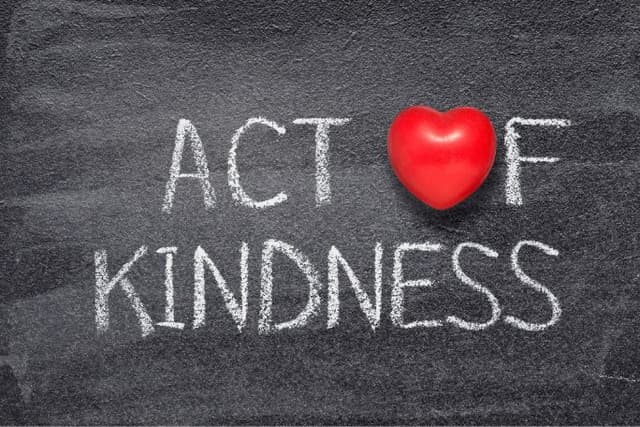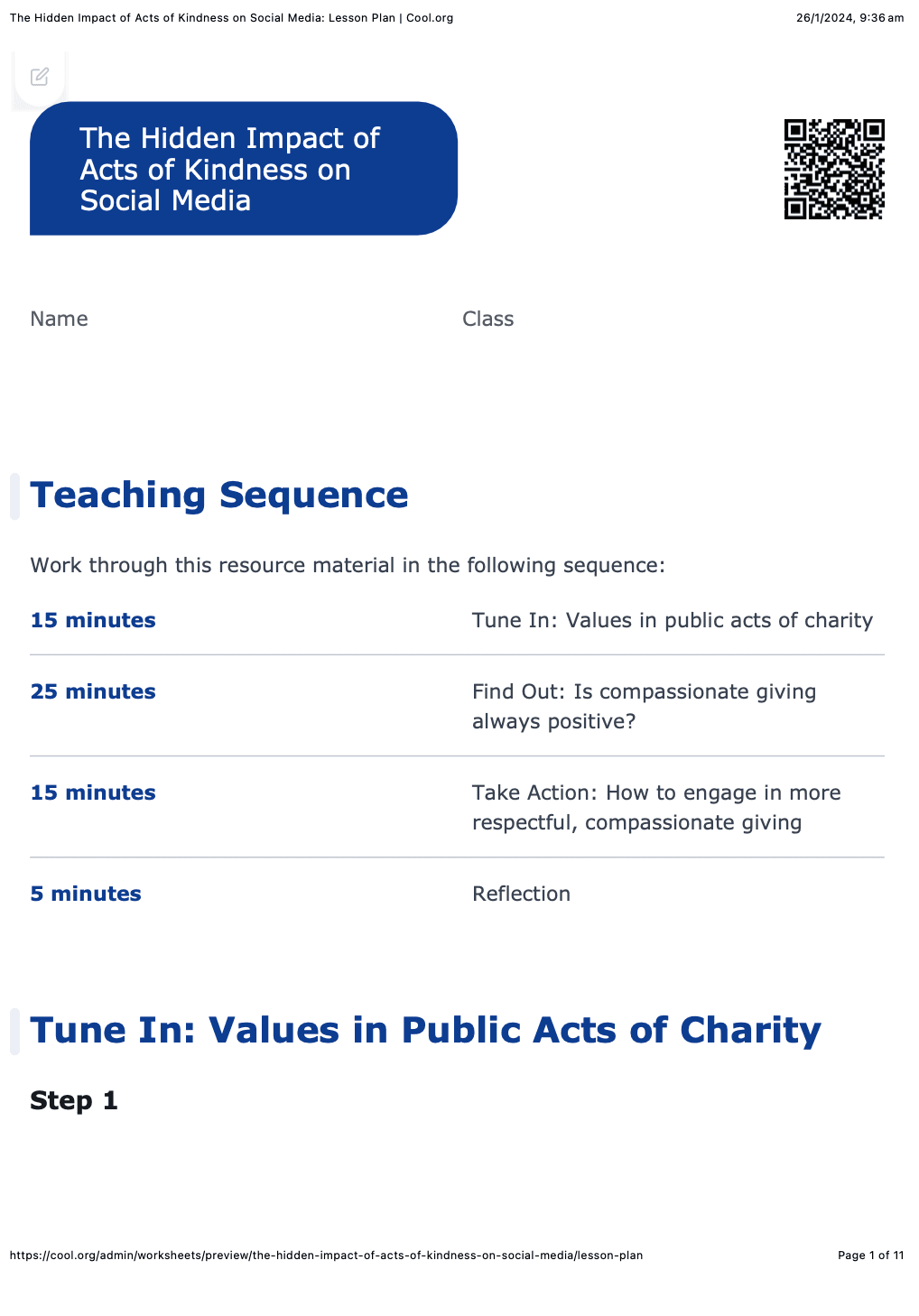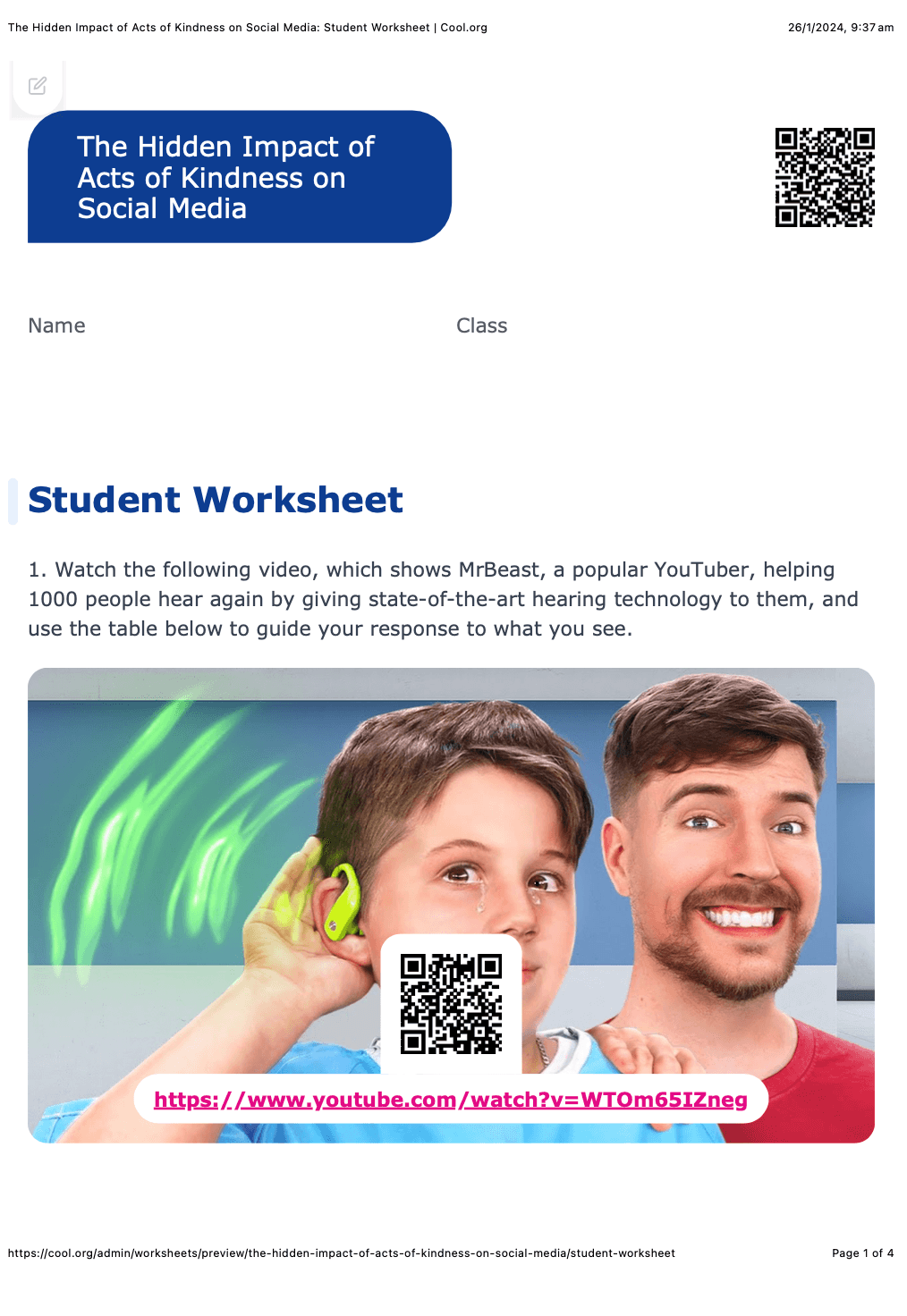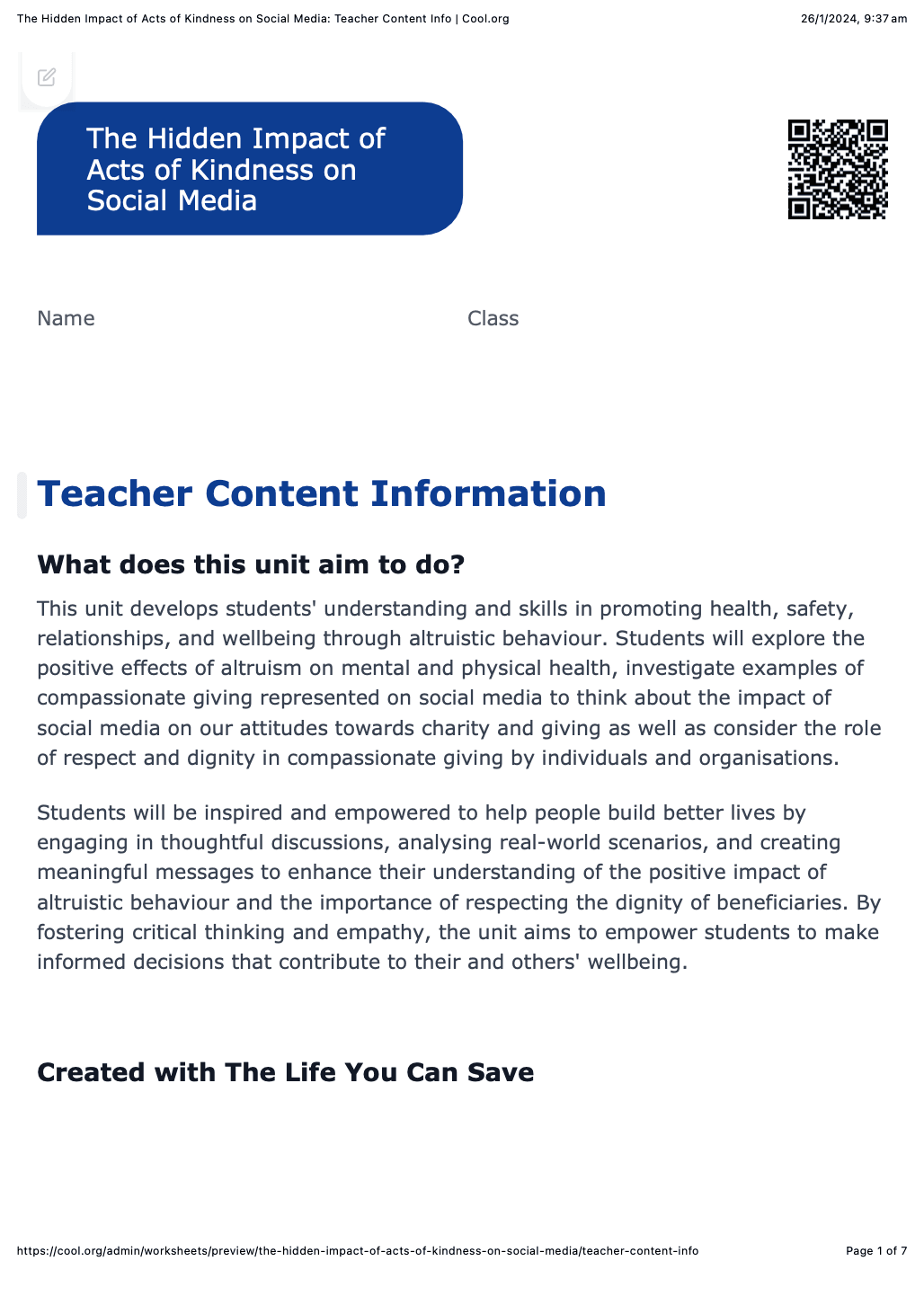Learning intentions:
Students will...
- explore the concept of dignity in the context of compassionate giving, recognising how media and influential people impact attitudes, beliefs, decisions and behaviours
- develop strategies for promoting respectful interactions with beneficiaries.
Success criteria:
Students can...
- describe the importance of dignity in compassionate giving
- evaluate how social media impacts our perception of altruism and compassionate giving
- recommend strategies for promoting respectful interactions.



